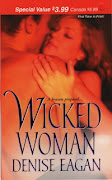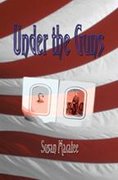As writers, we spend a great deal of time focusing on things like point of view, plotting, pacing, passive voice and the craft of constructing sentences that convey the right message to the reader.
But we dread writing query letters and synopses, even though they are the very first “impression” an editor has of us and our skill as a writer and our professionalism overall. Too often, we don’t give these valuable selling tools a lot of thought until it’s time to write one. And that can seem a pretty daunting task when you’ve just pulled a clean, warm copy of your latest MS off the printer.
But broken down into the necessary pieces, the query is not such a big deal. (Don’t tell my critique partners I said that – me of the trembling hands and sweaty palms at the very mention of the word “query”!!)
We all know the basics needed for a good query letter. Who is the story is about, minus the physical descriptions, what is going to pull them apart (Conflict!!! – please imagine this word as a flashing neon sign. Conflict!!) and how they are going to over come it. A little bit about who you are and why you are qualified to write this story and you’re done – right? Right!
Not so fast…
In recent months, in my capacity as senior editor at The Wild Rose Press, I have had the opportunity to see things from the “other” side of that envelope (or in my case, the e-mail inbox). So maybe it would be easier for me to talk about what not to do when querying an editor.
Dear Nicola…That was how the most recent query I received began. It pretty much went down hill from there. Call me old fashioned (it’s okay, I write historicals! I am old fashioned!) but having a stranger – let alone someone in a business situation – address me by first name just makes me bristle. Having them get that first name wrong just leaves me annoyed. Didn’t the author double check her information? Was my given name that difficult? Just a few weeks ago I sat through a three-hour-long high school graduation where nearly every other female student graduating was named Nicole or had Nicole for a middle name. Surely this author has heard it once or twice before. So what was this – a typo?
Slow down. Take your time. Have a friend or CP read the letter over. Set it aside for a day or two and re-read it before mailing it – and by all means, double check the accuracy of your information, right down to the spelling of the editor’s name and title.
Another query that comes to mind left me puzzled rather than interested in the author’s story. This author went on for several paragraphs in an attempt to convince me her story was appropriate for one specific line – a line that features non-American set historicals (i.e., regency, medieval). Yet the story was set in Colonial Virginia. This tells me she didn’t do her homework. Simply taking time to familiarize herself with our publishing company, and maybe a few minutes spent browsing the web site, would have been well worth her time. She would have seen that there was, indeed, a line for American-set historicals. Instead of wasting valuable “selling” time telling me how I could twist her story to fit this one particular line, she could have told me about the story itself. Do your homework. Familiarize yourself with the publisher you’re querying.
Lastly, mind your manners. Over at Wild Rose, we have a wonderful forum populated by our authors and wannabe authors where they share their successes, struggles and more. As editors, we often stop by to offer words of support, encouragement, and just to say hello. We enjoy the regular contact with the writers –heck, we’re writers, too, and the authors, in turn, have told us how much they like the “open door” feel of things on the forum. But it’s possible to get too comfortable. Not long ago an author posted a message complaining that she had sent a partial to an editor “like a month ago” and still hadn’t heard back. A month? A month you say? True our turn around time is a bit different than a big New York publishing house, and some editors aren’t quite as deluged as others and can respond more quickly --but posting the message to the forum was wrong. E-mailing the appropriate editor and inquiring about the status of her submission would have been appropriate.
Another author, mere minutes after I e-mailed her a detailed, two-page rejection letter pointing out to her exactly why I couldn’t accept her story as it was written and giving her in-depth suggestions on what areas of weakness she needed to focus on – went on the same forum ranting about editors “who don’t know what they’re talking about” and who asked her to “make changes that would compromise the historical accuracy” of her work. (Since when does learning the correct rules of PV affect historical accuracy?? ) She didn’t name me personally, but her intent was clear. Did she honestly think I wouldn’t see that message? What does that say about her to the other editors who saw it? She’s probably a wonderful person, but her angry, unprofessional response reflects poorly on her to everyone who sees it. Remember, whether you’re in a ladies room stall at a conference, or blabbing on a forum – you never know who may be listening.
One other common mistake I’ve seen is in the “bio” part of the query letter. You know, those last couple paragraphs where you say I’ve been writing for X number of years, am past president of my local chapter, etc. This should be about you, the writer. It’s important to convey to the editor how long you have studied your craft, how active you are in writing-related organizations, and any contests you’ve won or finaled in, particularly if it relates to the story you’re querying. But for me, personally, I don’t care if you have six goldfish, two cats and a dog named Ralph or that your husband is a retired marine biologist who can speak Dolphin. They aren’t querying me. You are. Save that stuff for the bio on your web site.
Perhaps my “favorite” query, or should I say the one that stands out in my mind as the worst I’ve ever received begins with “I’m querying you on behalf of so and so…” No mention of why this writer was querying me on behalf of someone else or the relation to that someone. Not to mention the whole sticky mess that opens up. Do you even know this person you’re querying for? And why couldn’t she do it herself? Too shy? Too busy? So for that one -- just don’t do it. Ever!
Thanks to Jenn and Christine for suggesting this blog, I never would have thought of it myself.
For more information about The Wild Rose Press, you can visit their website at www.thewildrosepress.com . You can also visit their “Greenhouse” for more information on writing query letters and synopses.
Friday, July 28, 2006
Subscribe to:
Post Comments (Atom)









1 comment:
Very nice, Nicole. I especially liked the goldfish lines, lol. I really do believe people include that, though I can't imagine why. Nor do I probably want to.... And it's true that you never know who's listening.
It's nice to have someone on the inside, as it were, to offer this kind of information. Thanks!
Christine
Post a Comment